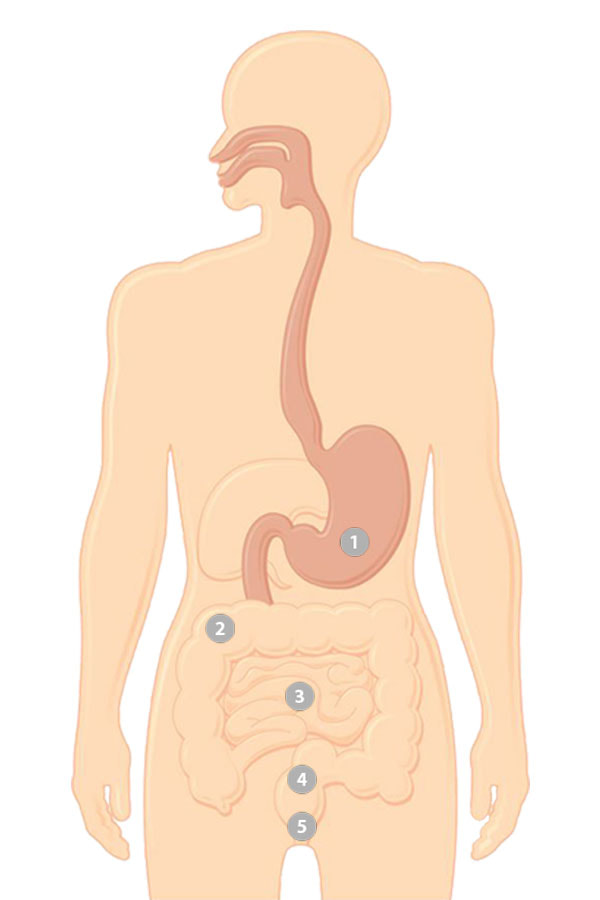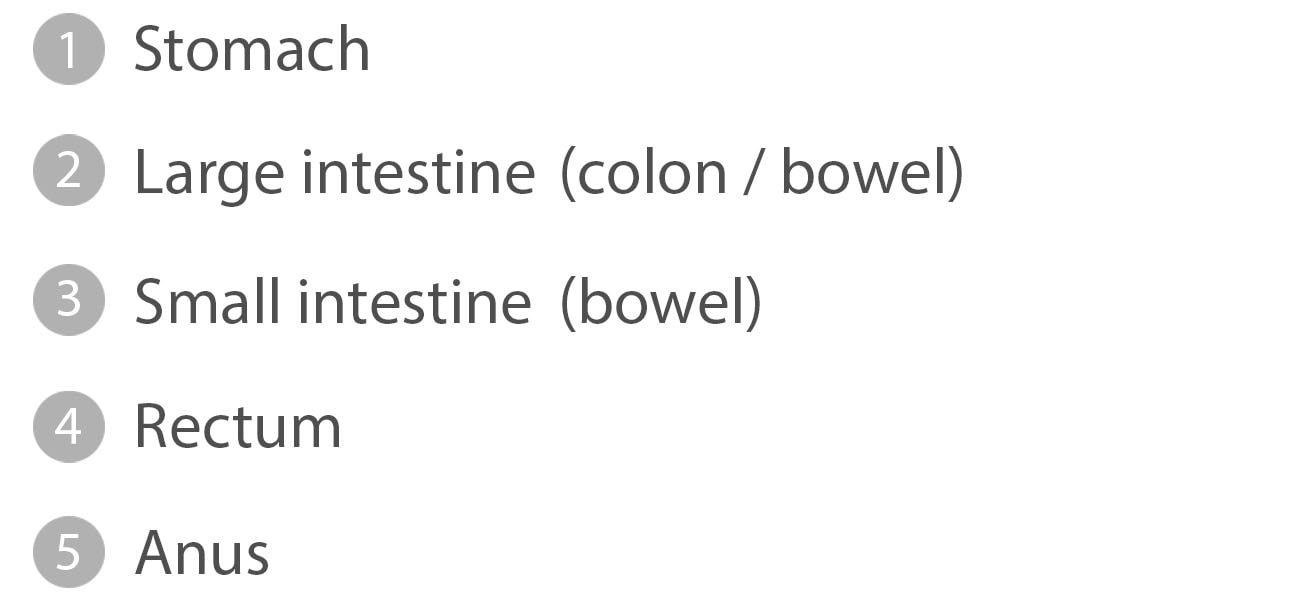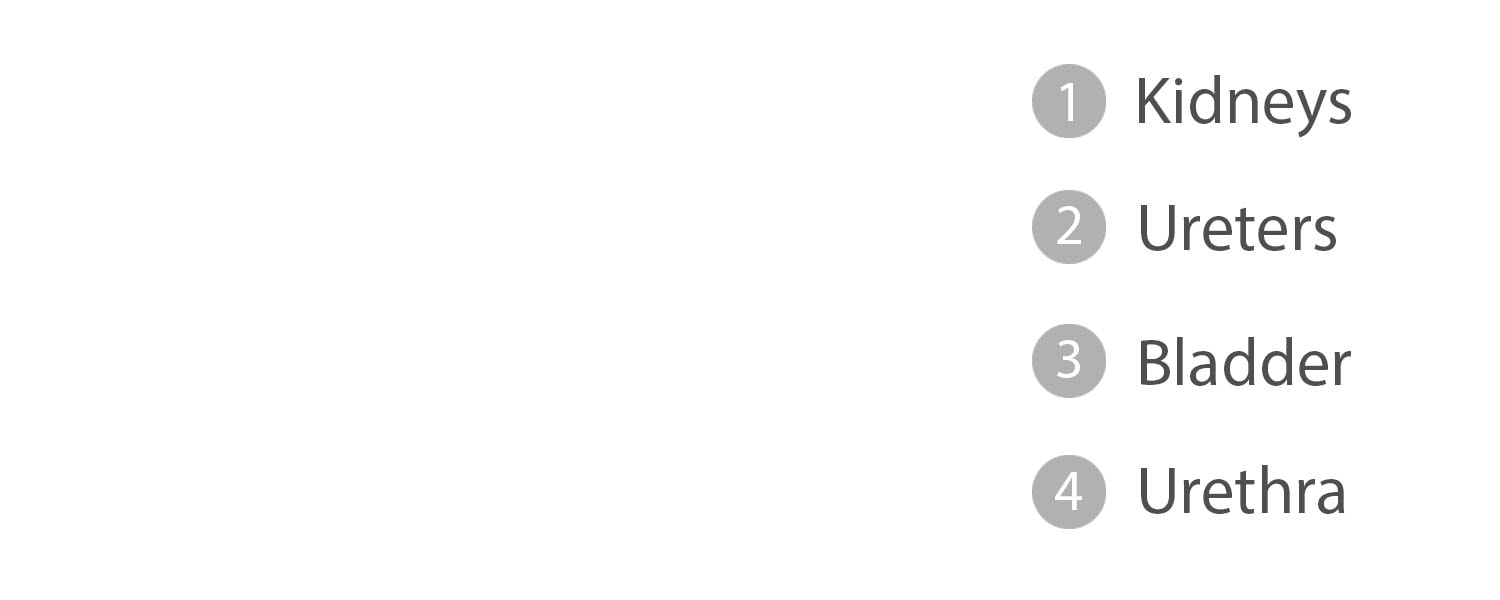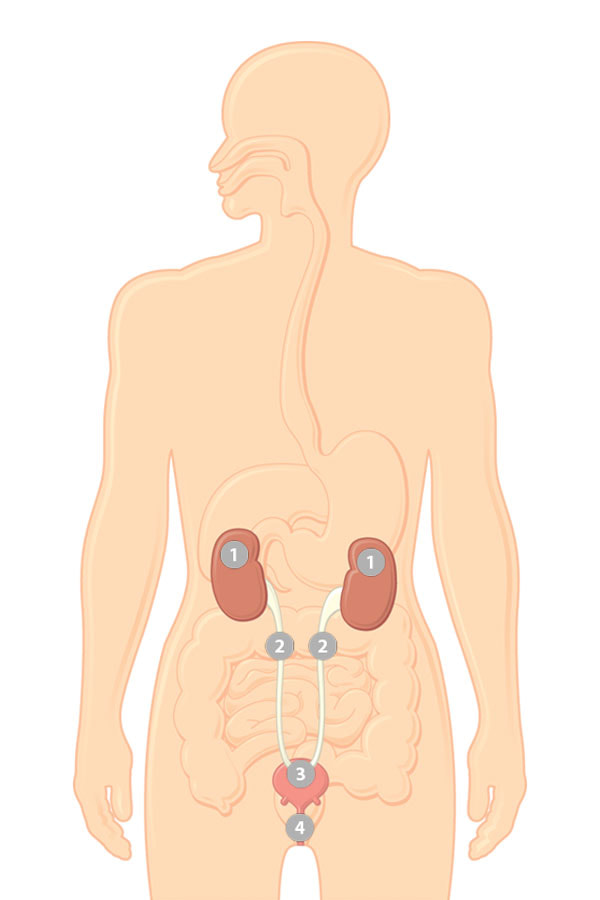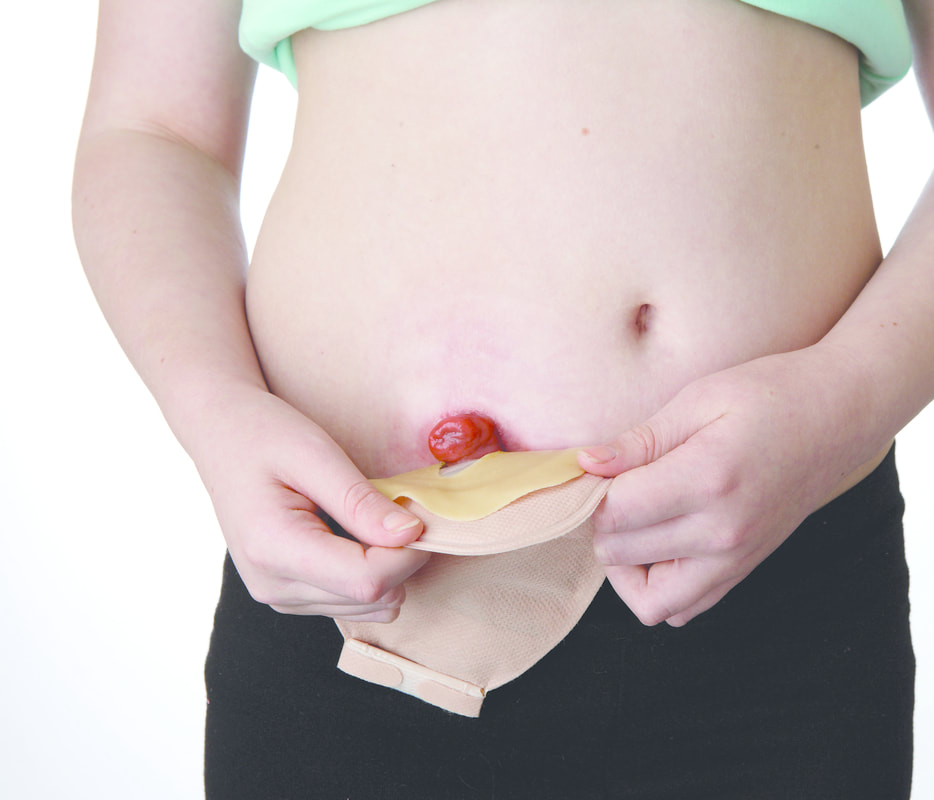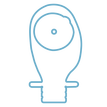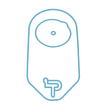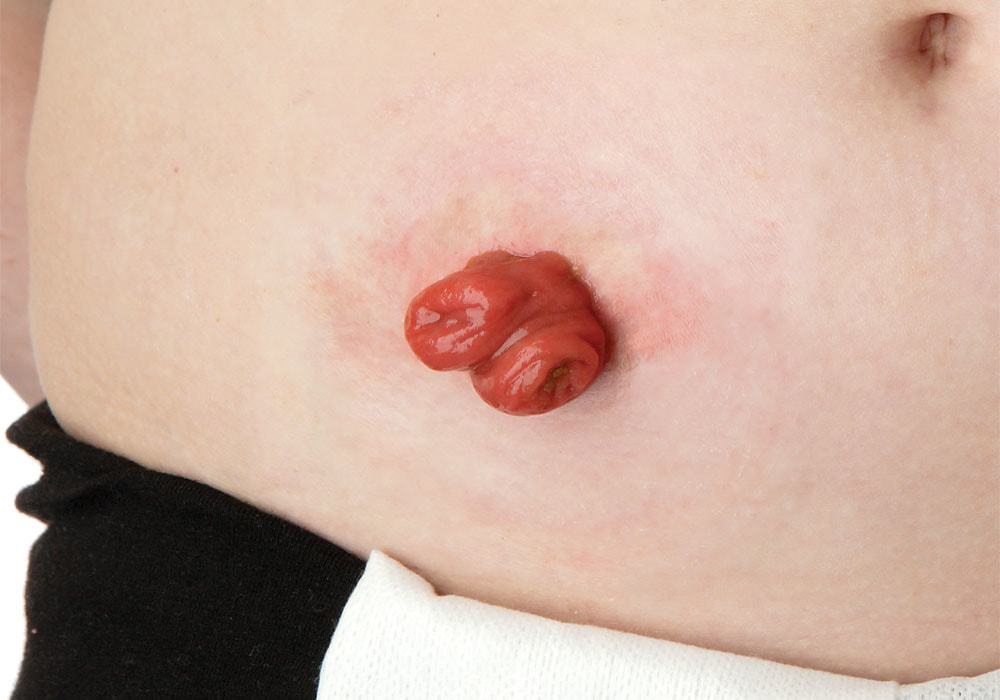|
The Digestive System
|
The Digestive SystemEach time you eat or drink, the food travels down a long tube (the oesophagus) into your stomach. Once there, it is broken down into smaller pieces and the digestive juices start to liquidise it. The stomach contents then move into the small bowel (ileum). It is here that digestion occurs and your body absorbs the nutrients it requires to provide your energy and to allow growth and the building of new cells. When digestion is complete, any waste and roughage is left behind. This then moves on into the large bowel (colon) where your body absorbs more fluid so that the waste becomes more solid. The waste is then pushed into your rectum by the muscles in the wall of the colon. From the rectum, the waste passes out of your body through your anus as stool.
|
The Urinary SystemEvery time you eat and drink, your body takes what it needs from the food to maintain all bodily functions. Waste products are then left behind in the blood and bowel. The urinary system removes a type of waste called urea from your blood, which is carried in the bloodstream to the kidneys. Urine is made by your kidneys and travels down two tubes- called the ureters- to your bladder. Nerves in the bladder let you know when it's time to urinate as the bladder fills. Your urine then exits the body through the urethra.
|
The Urinary System
|

